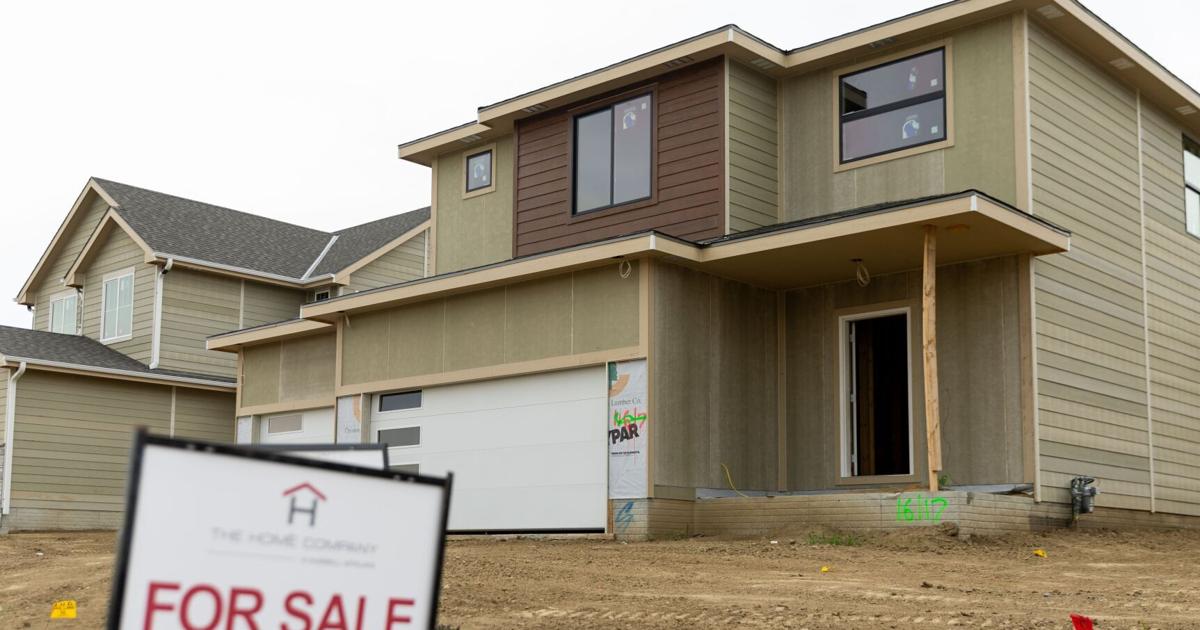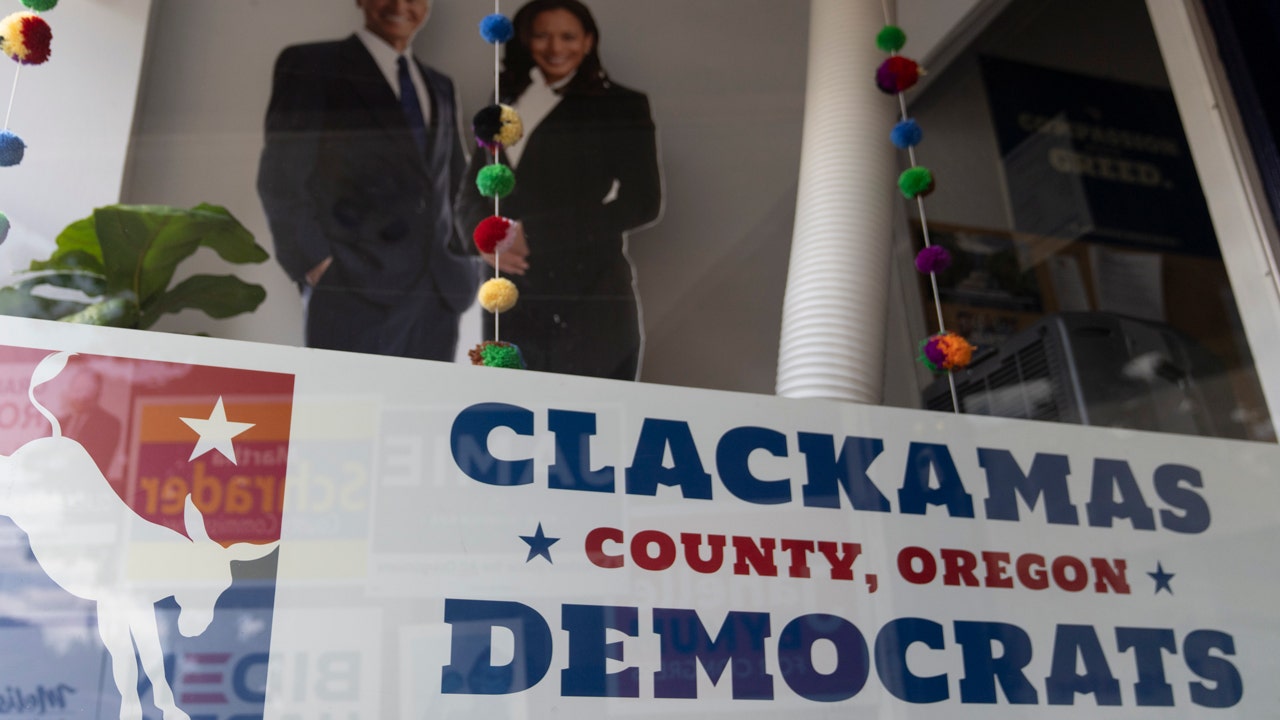Thanks to the state’s strong economy, families in Nebraska are reaping the benefits of low unemployment, solid job growth and some of the nation’s largest gains in real personal income.
But sharply higher housing costs due to the state’s shortage of affordable housing could pose a looming challenge to the budgets of some families.
While the Nebraska economy remains strong, families buying homes are being pinched by both higher interest rates and skyrocketing home prices.
Those are the main takeaways from a report on Nebraska household finances recently completed by the Omaha branch of the Federal Reserve.
“There’s a relatively positive picture for Nebraska,” said Nate Kauffman, senior vice president and executive of the Omaha Fed branch, which is part of the Federal Reserve Bank of Kansas City. “We still have very low unemployment, it seems that businesses are still actively hiring. But there’s risks out there, and I think that’s something we’ve been paying a lot of attention to.”
People are also reading…
In particular, families who have recently purchased homes could be squeezed financially, he said, facing a double-whammy of high mortgage interest rates and big spikes in the prices of homes.
The report prepared by Kauffman and Omaha branch Assistant Vice President John McCoy found that even amid the highest inflation in four decades, the Nebraska economy — like that of the nation as a whole — has proven resilient.
Nebraska recently has posted job growth at a 2% annual rate, which is strong historically and well above the rates of 1% and below in the years leading into the pandemic.
“To be looking at employment growth of 2% is actually fairly strong,” Kauffman said.
At the same time, Nebraska’s unemployment remains among the lowest in the nation, at 2.1% in the September figures released Friday.
That combination of strong job growth and low unemployment has forced employers to bid up wages to get the workers they need, Kauffman said.
As a result, average hourly earnings in Nebraska have been rising an average of more than 5% a year since the start of 2019. Some of the biggest percentage earnings gains have been for those working at the lower end of the wage scale in the leisure and hospitality industries, Kauffman said.
While those wage increases for many were eaten up by high inflation, gains in recent quarters have finally been outpacing inflation as inflationary pressures have eased.
In fact, from the start of the pandemic to the first quarter of 2023, Nebraska actually led the nation in real, inflation-adjusted personal income growth, the report found.
As of the second quarter this year, Nebraska has now slipped one spot to second nationally behind Montana, Kauffman said, though the story is largely the same. Nebraska’s recent high wage growth, a strong farm economy and Nebraska’s voter-approved decision to expand Medicaid all factored into such lofty personal income rankings among the states in that time, he said.
Due to that positive income picture, families have also been putting more money away. The report found annual per-capita savings in Nebraska have been well above the national rate.
The biggest cloud on the family finance horizon in Nebraska is posed by the state’s shortage of affordable housing, Kauffman said.
The World-Herald has recently been reporting on the state’s affordable housing crisis, fallout from the 2007 Great Recession.
In the wake of the recession, homebuilding plummeted and still has yet to recover. And the scarcity of new homes also ratcheted up competition for existing homes.
The result: Average home sale prices in the Omaha metro area have shot up nearly 10% or more annually in four of the past five years — well outpacing increases in family income.
The Omaha Fed report looks at the housing squeeze in a new way, calculating the average annual expense for a new mortgage. That takes into account not only the higher home prices, but also the impact of much higher home mortgage interest rates.
In an effort to rein in inflation, the Federal Reserve in Washington, D.C., has raised interest rates 17 times in less than two years. As a result, interest rates on a typical 30-year fixed-rate mortgage have hit 8%, well above the 3% rates just two years ago.
With those rates and higher home prices, the Fed report found a sharp spike in Nebraska’s average annual expense for a new mortgage: from roughly $10,000 three years ago to now approaching $20,000.
“If you’re originating a new mortgage, you’re going to see an increase in costs relative to a few years ago, both in terms of interest expenses and the actual cost of the home,” Kauffman said.
Families who rent also face a hurdle, as rents are also rising steeply, the report found.
The report said such housing costs will make it more challenging for those families to save and get ahead, leaving them less money for emergency situations, household bills and more.
The best hope for those families, Kauffman said, is for the economy in Nebraska to remain strong.
There are still hopes that inflation can be brought under control without pushing the economy into a job-shedding recession — the “soft landing” that the nation’s central bank has been working toward.
“The data that we continue to see still show a lot of strength,” he said. “So there’s definitely risks to be aware of, but again, it seems as though the economy has been pretty resilient.”



Our best Omaha staff photos & videos of October 2023

Millard North, left, and Papillion-La Vista stand during the National anthem before playing in the Nebraska Class A State Softball Championship at Connie Claussen Field in Omaha on Monday, Oct. 16, 2023.

Papillion-La Vista’s Avery Wolfe (3) celebrates a two-run home run against Millard North during fifth inning of the Nebraska Class A State Softball Championship at Connie Claussen Field in Omaha on Monday, Oct. 16, 2023.

Papillion-La Vista celebrates their win over Millard North for the Nebraska Class A State Softball Championship at Connie Claussen Field in Omaha on Monday, Oct. 16, 2023.

Looking north on 48th Street, towards Center Street, Omaha fire and rescue investigate the scene of a car accident where a vehicle landed on its roof on Wednesday, Oct. 11, 2023. No one was seriously injured.

Omaha Westside’s Anthony Rezac (5) leaps over Millard South’s Javonte Walker (1) into the end zone in the Omaha Westside vs. Millard South football game at Millard South High School in Omaha on Friday, Oct. 13, 2023. Omaha Westside won the game 31-14.

Omaha women are brought to tears during a rally in support of Palestinians at 72nd and Dodge Streets in Omaha on Friday, Oct. 13, 2023.

Omaha Creighton Prep’s Tony Coniglio (5) tries to get away from Papillion-La Vista’s Payton Prestito (21) in the Papillion-La Vista vs. Omaha Creighton Prep football game at Omaha Burke High School in Omaha on Thursday, Oct. 12, 2023.

Elkhorn’s Charlie Lamksi, right, celebrates catching a pass behind Blair’s Ethan Baessler during the second half at Elkhorn on Friday, Oct. 6, 2023.

Blair’s Brock Templar sacks Elkhorn quarterback Kayd Matthews during the first half at Elkhorn on Friday, Oct. 6, 2023.

Bob Kerrey walks under the Bob Kerrey Pedestrian Bridge on Saturday, Oct. 7, 2023.

Bob Kerrey gives a speech in front of the pedestrian bridge that bears his name on Saturday, Oct. 7, 2023.

Lincoln Pius X players celebrate their victory following the Millard West vs. Lincoln Pius X district A-6 softball championship at Millard West High School in Omaha on Thursday, Oct. 5, 2023. Lincoln Pius X won the title 4-3.

From left: Omaha’s Ede Gramberg (8), Omaha’s Gonzalo Cuevas (2) and Omaha’s Theo Klein (10) celebrate Klein’s goal during the second half of a men’s college soccer game at Morrison Stadium in Omaha on Tuesday, Oct. 3, 2023.

Creighton’s Dominic Briggs (12) watches a shot sail past Omaha’s Nathanael Sallah (30) and wide of the goal during the second half of a men’s college soccer game at Morrison Stadium in Omaha on Tuesday, Oct. 3, 2023.

Omaha police investigate an officer-involved shooting near 60th and Jaynes Streets on Tuesday, Oct. 3, 2023.






























